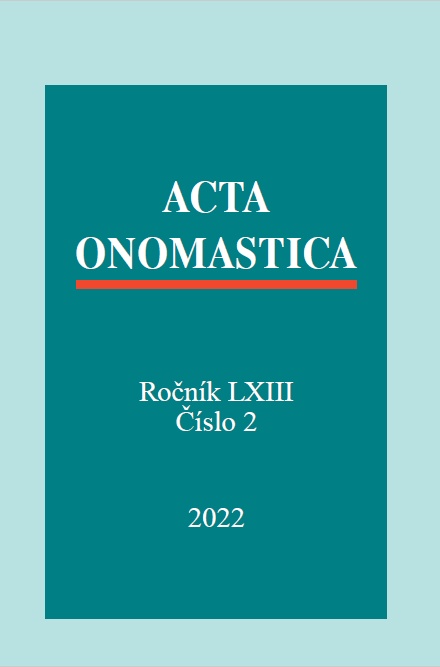Urban names and etymological reinterpretation
Urban names and etymological reinterpretation
Author(s): Justyna Barbara WalkowiakSubject(s): Sociolinguistics
Published by: AV ČR - Akademie věd České republiky - Ústav pro jazyk český
Keywords: etymological reinterpretation; folk etymology; hodonyms; street names; urban names; Poland
Summary/Abstract: Etymological reinterpretation, less aptly referred to as folk etymology, is a cognitiveprocess by which less familiar (”weak”) lexical units are ‒ on various levels of consciousness‒ reassigned to other semantic, syntactic or inflectional categories underthe influence of “stronger” words or patterns, more familiar to language users. Thisphenomenon can be observed not only in common nouns but also among propernames, though the latter are less often subjected to scholarly analysis in that respect.Moreover, while there exist studies of folk etymology in settlement names and microtoponyms,usually analysing legends of how names of towns, villages or landscapefeatures originated, not as much attention has been so far devoted to this phenomenonin relation to urban naming in Poland. This article studies the etymological reinterpretationof Polish urban names (mostly those of streets). Drawing on Witold Cienkowski’s1972 classic model of classifying the phenomena of folk etymology, it offers itsadaptation to fit the specificity of hodonyms by replacing the category of meaningwith that of motivation and by the inclusion of inflection as an additional factor. Theproposed classification is illustrated with examples from Polish cities.
Journal: Acta Onomastica
- Issue Year: 63/2022
- Issue No: 2
- Page Range: 483-496
- Page Count: 14
- Language: English

